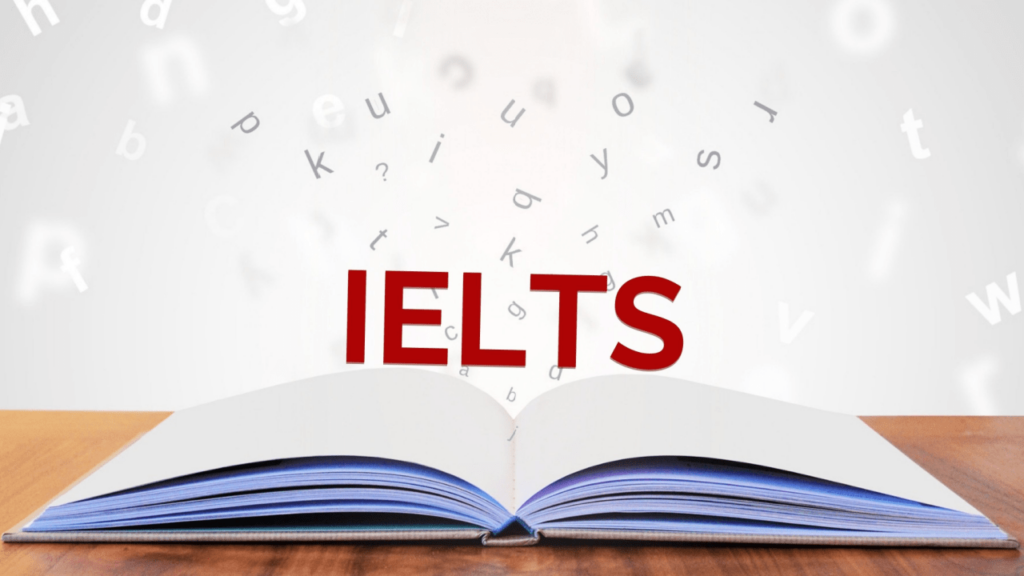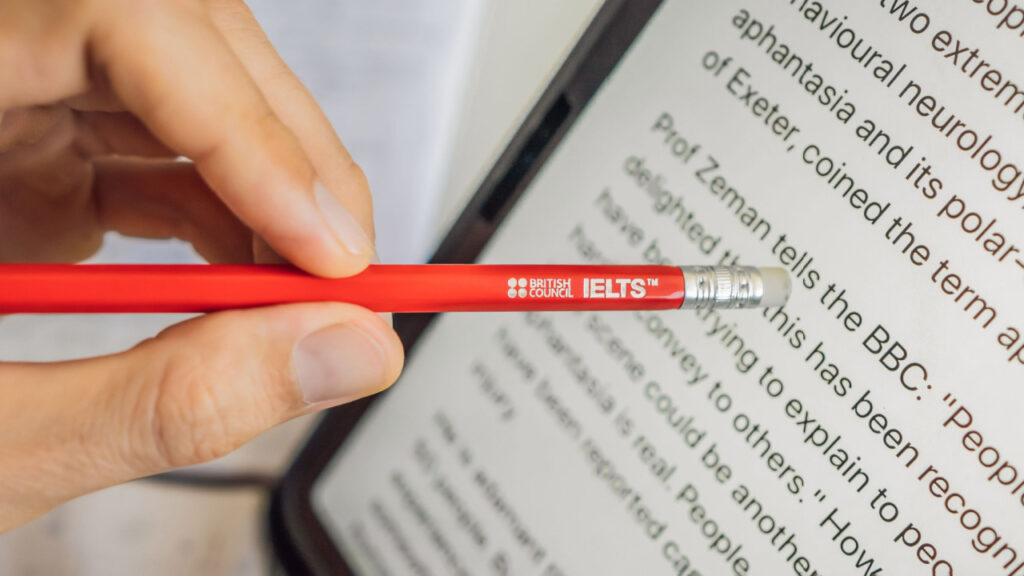Most IELTS trainers believe an IELTS Academic Reading Score of 7 or 8 will contribute to an excellent overall band score.
Here’s a fun fact: You only need 30 out of 40 correct answers to get an IELTS academic reading score of 7.
Understanding the IELTS academic reading score criteria before you start your preparation can help you set goals.
The IELTS Reading section mainly consists of MCQs, which makes it a more accessible section to score in.
Time management is critical in this section. Though the Reading section is IELTS and is often considered easy, we recommend not taking it for granted. Even if you are an avid reader, you mustn’t take this section for granted, as it requires much practice.
This blog discusses the IELTS Academic Reading score in detail, including the score calculation, conversion and tips to crack the IELTS reading section.
IELTS Academic Reading Score: Everything You Need To Know
Crack IELTS Exam in first attempt
Attend Leap’s free masterclass to get tips, tricks and advance strategies to crack IELTS exam in first attempt

The IELTS academic reading score gives insight into your reading abilities to immigration officials and institutions. The section features three long passages. These passages are taken from books, journals, magazines, and newspapers. The three passages are structured in an increasing difficulty pattern.
The reading section has 40 questions based on the featured text.
The reading section consists of various questions like multiple choices, matching headings, True/False/Not Given, summary completion, and sentence completion questions. The questions test various reading skills, including skimming, understanding logical arguments, reading for gist, and writers’ purposes.
Crack IELTS Exam in first attempt

Attend Leap’s free masterclass to get tips, tricks and advance strategies to crack IELTS exam in first attempt
Join the IELTS preparation journey with LeapScholar, India’s biggest study abroad platform, and learn all you need to know about the IELTS Academic Reading question types and passages.
Our exclusive IELTS courses offer group-based learning and 500+ practice questions. You’ll also have 20 hours of live classes, 100+ mock tests and all the study materials you’ll ever need. The clock is ticking, and seats are limited, so book your slots now!

IELTS Academic Reading Score Chart & Calculation
The IELTS Academic Reading score is graded on a scale of 1-9. The IELTS Academic reading score is calculated based on the total number of correct answers. The number of correct answers you get from the given 40 questions is called the raw score.
The raw scores will be further converted to the 0-9 bands.
The IELTS Academic Reading score can be whole bands like 4 or 5 or half bands like 5.5 or 7.5, depending on the number of correct answers.
You must note that if the decimal part exceeds 0.5, the score will be rounded off to the next upper value. Example: 6.75 will be rounded off to 7.
If the decimal point is below 0.5, your grade will be rounded off to the nearest lower value. Example: 7.2 will be rounded as 7.
Here are some examples of IELTS Academic Reading score calculation.
1. Number of correct answers: 33
Raw score: 33
IELTS reading band score: 7.5
2. Number of correct answers: 27
Raw score: 27
IELTS band score: 6.5
What does your IELTS Academic Reading Score mean?
As we mentioned, you get a score of 1-9 for each section of IELTS. Each of these band scores means something. Generally, a score above 6 means your English language skills are good enough.
A score below 6 means you certainly need to improve your language skills.
| Band score | Level | Description (As per British Council) |
| 9 | Expert user | You have a full operational command of the language. Your use of English is appropriate, accurate and fluent, and you show complete understanding. |
| 8 | Very good user | You have a fully operational command of the language with only occasional unsystematic inaccuracies and inappropriate usage. You may misunderstand some things in unfamiliar situations. You handle complex detailed argumentation well. |
| 7 | Good user | You have an operational command of the language, though with occasional inaccuracies, inappropriate usage and misunderstandings in some situations. Generally, you handle complex language well and understand detailed reasoning. |
| 6 | Competent user | Generally, you have an effective command of the language despite some inaccuracies, inappropriate usage and misunderstandings. You can use and understand fairly complex language, particularly in familiar situations. |
| 5 | Moderate user | You have a partial command of the language and cope with overall meaning in most situations, although you will likely make many mistakes. You should be able to handle basic communication in your own field. |
| 4 | Limited user | Your basic competence is limited to familiar situations. You frequently show problems in understanding and expression. You are not able to use complex language. |
| 3 | Extremely limited user | You convey and understand only general meaning in very familiar situations. There are frequent breakdowns in communication. |
| 2 | Intermittent user | You have great difficulty understanding spoken and written English. |
| 1 | Non-user | You have no ability to use the language except a few isolated words. |
| 0 | Did not attempt the test | You did not answer the questions. |
IELTS Academic Reading Score Chart: Raw Score to Band Score
Raw scores in IELTS Academic Reading score is the total number of questions you have gotten right out of 40 questions. These scores are converted to a scale of 0-9, which are called as band scores.
To get a band score of 6 and above in IELTS reading, you must answer at least 23-26 questions correctly.
The IELTS Reading raw score to band score conversion table is given below.
| Band Score | Raw scores |
| 9 | 39-40 |
| 8.5 | 38-37 |
| 8.0 | 36-35 |
| 7.5 | 34-33 |
| 7.0 | 32-30 |
| 6.5 | 27-29 |
| 6.0 | 23-26 |
| 5.5 | 19-2 |
| 5.0 | 15-18 |
| 4.5 | 13-14 |
| 4.0 | 10-12 |
| 3.5 | 8-9 |
| 3.0 | 6-7 |
| 2.5 | 4-5 |
IELTS Academic Reading Score: Expert Advice
Whether you’re a native English speaker or not, consistent practice makes securing a good IELTS Academic Reading score achievable. One way to make it possible is by reading regularly. Your vocabulary, grammar and time management skills all improve significantly over time.
Below are some tips from our IELTS experts!
Build time management strategies
Learn to scan the content rather than read every word. Your focus should be on identifying the key information. You can only build this skill by reading regularly.
Focus on grammar and vocabulary
Improving your vocabulary is a mandatory step to score well in IELTS. Learn new words every day and start focusing on your grammar. Your vocabulary and grammar contribute 50% of your IELTS reading score.
Develop the ability to analyse difficult language
Try ways to analyse complex language, and if you find unfamiliar words, note their meanings and the context they’re used in. It will allow you to understand the jargon used in professional writing.
Learn synonyms
Whenever you learn a new word, also look at its synonyms. Most true and false questions have been paraphrased. If you master synonyms, you can quickly find the keywords and answers.
Learn the art of logical deduction
Make a habit of identifying the important points and keywords. You can use these words to locate the answers easily. This is helpful for logical reasoning questions and while answering multiple-choice questions.
Also read: Dates of IELTS Exam 2023 – Check IELTS Test Dates & Locations in India!
Tips for IELTS Academic Reading Exam Day
These hacks will boost your confidence on the exam day.
Do not read everything
Managing time is the key! Remember: You don’t have the time to read everything. Read the tasks and questions first and think about the key points you need to find to answer those questions.
Skim through paragraphs
Skim-read the summary to get a general understanding of what it’s about. Quickly scan through the material and try to find critical points.
With enough practice, you will find words pop out as you scan the passages, these are referred to as keywords. Keywords can help you find answers easily.
Make use of paraphrasing
Paraphrasing is a key skill required to score well in IELTS reading. You can paraphrase by using synonyms, changing grammatical structures and phrasal verbs.
Focus on your writing skills too
It may be a reading task, but it still remains an English language test. The examiner will always have an eye on your writing skills, and IELTS Reading answers are no exception.
Make sure the grammar and writing style is appropriate in all your answers.
IELTS Academic Reading: Sample Questions
Sample Question 1
MCQ Type : Choose one correct answer
Only a tiny fraction of Newton’s work on alchemy has been published, but he wrote around a million words on the subject, including laboratory notes, indexes of alchemical substances and transcripts from other sources.
On his death in 1727, Newton had over 100 manuscripts filled with alchemical material, sold by auctioneers Sotheby’s as part of a larger collection in 1936. This side of Newton was often an embarrassment to his admirers. His first biographer, John Conduitt, like many commentators who followed, played down the role of alchemy (and other pursuits) in Newton’s work, stating:
“When he was tired with his severe studies, his only relief and amusement were going to some other subjects such as History and Chronology or Divinity and Chymistry”. Just how important the study of alchemy was to Newton only began to be recognised in 1947, when John Maynard Keynes, who bought much of the work from Sotheby’s, declared in his essay, “Newton, the Man, “;” Newton was not the first of the age of reason. He was the last of the magicians.
1. Many thought Newton was what?
A. tired
B. an embarrassment
C. admired
Ans. B
2. What did Keynes call Newton?
A. old
B. reasonable
C. a magician
Ans. C
Sample Question 2
Find a suitable heading for the paragraph
Despite its bad reputation, stress historically had a vital role to play. Commonly referred to as the ‘fight or flight’ mode, the sudden release of stress hormones like adrenaline and cortisol causes the heart to beat faster, airways to dilate and blood vessels to open up, all of which push the body towards optimal performance and, ultimately, survival.
In the rest of the animal kingdom, this is still often the difference between life and death. As he springs off to freedom, the lucky gazelle who escapes the lion can thank this primal evolutionary response.
1. Stress reduction in animals
2. Two types of stress
3. The fallout of cell death.
4. The best type of exercise
5. How stress can be useful
Ans. 5

The IELTS Academic Reading section is easy to score through proper planning, studying, revision and practising as many questions as possible.
Join our IELTS programs to learn the best IELTS Reading techniques. Get 20 hours of live classes, 100+ mock tests, and 500+ practice tests.
Our classes are completely flexible, and you can participate in student discussions on telegram.
Download the IELTS Prep app by LeapScholar and access specially crafted lessons by experts accredited by IDP, British Council, and Cambridge. Over 1M students have trusted us with their IELTS prep journey, Now is your turn.
Frequently Asked Questions
-
Q. How many correct responses are needed to get a 7+ band IELTS Academic Reading Score?
A. You must correct at least 30 out of 40 answers to get a 7 band score in IELTS Reading. The reading section can be easily cracked with the proper preparation. If you aim to score an 8 in IELTS reading, you must get 35-36 questions correct. For a band of 9, you must get all your answers right.
-
Q. How can I increase my IELTS academic reading score?
A. Reading regularly is one of the best strategies to improve reading comprehension. Here’s what else you can do:
-Understand the test format thoroughly
-Develop skimming and scanning skills
-Improve your vocabulary
-Improve your reading speed
-Seek continuous feedback -
Q.What is the raw IELTS Academic reading score?
A. There are 40 questions in the IELTS Academic Reading section. The reading section gets one mark increments, meaning you will get one mark for every correct answer. Your Raw score is the number of right answers you get out of 40 questions. You don’t get any marks for wrong answers; there’s no negative marking.
-
Q. How is the IELTS Academic Reading score calculated?
A. In the IELTS Academic Reading test, you get points for each question you answer correctly. These points are added up to give you a total score. This total score is called a raw score. The raw score is converted into a band score between 0 and 9. Anything above six is considered to be a good score. The more questions you get right, the higher your band score will be.
-
Q. Are IELTS retakes allowed for one section?
A. Earlier this year (2023), IELTS announced one skill retake, allowing test takers to retake just one section of the exam rather than the entire test. This was to come into effect in March 2023. However, currently, it is only available in Australia. There are no updates stating when one-skill retake will be released to the rest of the world.
-
Q. In the IELTS Academic Reading Score, is 6.75 rounded to 7?
A. Yes, the test taker’s overall IELTS academic reading score is rounded to the nearest full or half band. For example, your final score will be 7 if your average is 6.75. Your final score will be 6.5 if your total average is 6.25. You can find your band score by converting your raw scores to a scale of 0-9.
-
Q. Is IELTS Reading challenging?
A. The reading portion of the IELTS exam is easy to score with proper planning, study materials, resources, and practice. Leap’s IELTS experts suggest proper planning, studying from credible courses and resources, and practising several sample papers to easily score high on the Reading test.
-
Q. What is the highest band score I can achieve in IELTS Academic Reading?
A. The highest band score you can achieve in IELTS Academic Reading is 9. The British Council describes this band score like this: “You have full operational command of the language. Your use of English is appropriate, accurate and fluent, and you show complete understanding.”
-
Q. Are there different types of questions in the IELTS Academic Reading test?
A. Yes, the IELTS Reading includes various question types such as multiple-choice, True/False/Not Given, matching headings, sentence completion, list selection, choose a title and table completion questions. These question types assess reading skills, like skimming, scanning, and understanding details.
-
Q. How many reading passages does the IELTS Reading section contain?
A. The IELTS Academic Reading section typically consists of three passages, each followed by a set of questions. The IELTS general test also consists of three sections. These passages cover a range of academic topics and styles. Each of these passages is followed by a set of questions that assess various reading skills, such as understanding main ideas, locating specific information, identifying supporting details, and analysing the structure of the text.
-
Q. Can I take a break during the IELTS Academic Reading test?
A. No. The IELTS Academic Reading test lasts for 60 minutes. You have to read three passages and answer around 40 questions in total. There are no scheduled breaks during the IELTS Academic Reading test. The 60-minute time limit is continuous, so manage your time wisely to complete the section.






